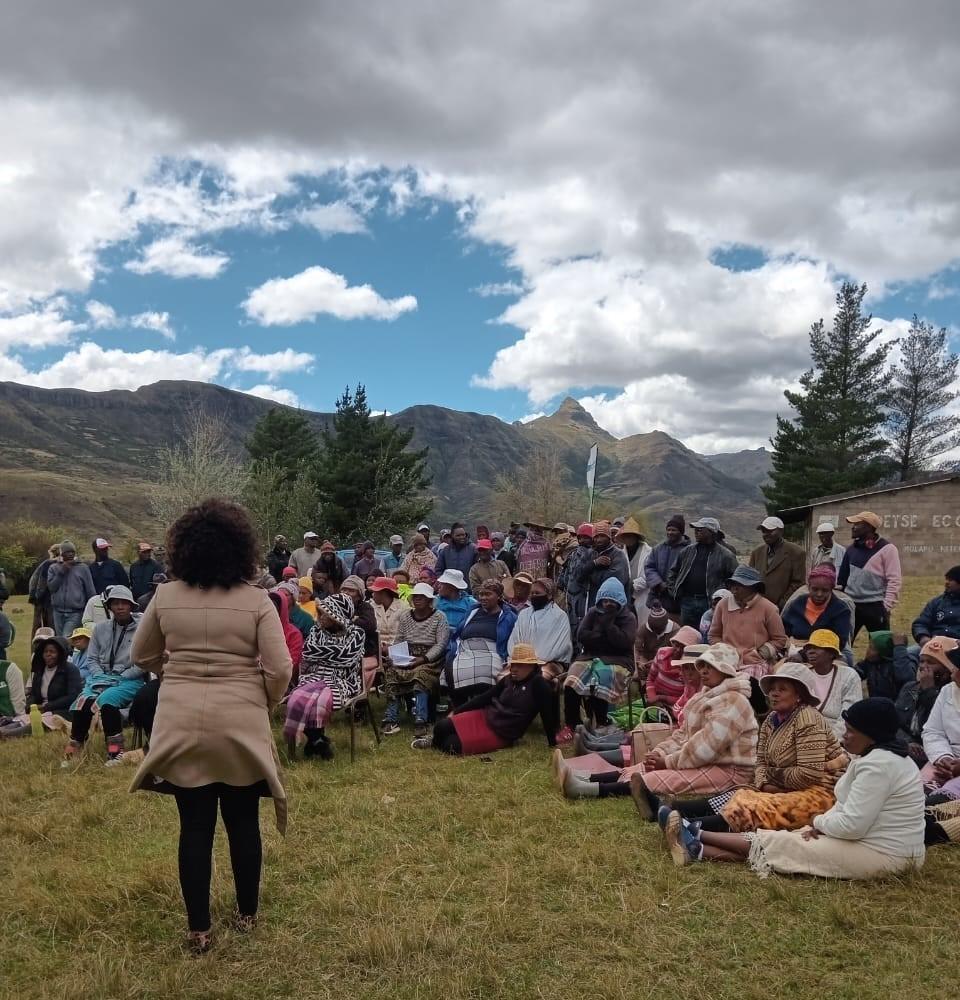Support for the Reform and Strengthening of Governance in Lesotho

The European Union (EU) in Lesotho is dedicated to fostering good governance, upholding gender equality and human rights, and establishing a fair justice system as integral components of its cooperation strategy. With a vision of supporting the Kingdom of Lesotho in cultivating a peaceful and just society, the EU is committed to reinforcing constitutional reforms that empower citizens and enhance democratic processes.
The EU actively works to improve service delivery and access to justice while strengthening civil society organisations in Lesotho. By aligning these reforms with global Sustainable Development Goals, the EU ensures a holistic approach that not only addresses immediate challenges but also paves the way for sustainable development and long-term prosperity for all citizens of Lesotho.
Why support for the Reform and Strengthening of Governance?
- Rule of law and good governance: Promoting strong legal frameworks to uphold human rights and gender equality in Lesotho.
- Improved institutional performance: Enhancing the efficiency and effectiveness of justice, legal, and public service sectors for better governance.
- Accessible justice: Ensuring that justice services are of high-quality and accessible, especially for women, children, and vulnerable groups, in line with SDG 5 and 16.
- Accountability and transparency: Strengthening the integrity, credibility, and accountability of justice and governance institutions for a more just society.
How does the EU support the Reform and Strengthening of Governance?
- Support for national reforms: The EU has been a steadfast supporter of the national reforms process, providing technical support for country-wide consultations and to the National Reforms Authority (NRA) in the fulfilment of its mandate.
- Capacity-development: Strengthening the skills of justice actors, and oversight bodies, including lawyers, judicial officers, prosecutors, and court personnel, through targeted training initiatives.
- Stakeholder engagement: Establishing information and dialogue platforms for right-holders, civil society organisations, and interest groups to engage meaningfully in the reform process.
- Legal alignment: Reviewing and revising legislative and regulatory frameworks to ensure they align with ongoing reforms, including necessary legal amendments and policy development.
- Justice sector efficiency: Improving cooperation and coordination among criminal justice actors to enhance the overall efficiency of the justice sector, including reducing pending backlog, while also developing a performance and integrity framework for the judiciary.
- Partnerships for education: Collaborating with the Law Faculty at the National University of Lesotho (NUL) to enhance its capacity for training legal professionals and improving the understanding of legal, judicial, and institutional responses to the needs of right-holders.
- Access to justice: Extending legal aid and representation services to indigents and vulnerable groups, while increasing the use of diversion, non-custodial measures, mediation, and rehabilitation for inmates, including men, women, and juveniles.
- Oversight capacity building: Strengthening the technical capacities and professional skills of key oversight institutions, such as the Ombudsman, Directorate of Corruption and Economic Offences, and the Attorney General, and the Parliament, to improve their governance functions and promote transparency and accountability in public sector operations.
Background
The European Union (EU) prioritises justice and governance as fundamental pillars for sustainable development, peace, and human rights. The EU believes that a strong and accountable governance framework is essential for upholding democracy, promoting the rule of law, ensuring transparency, and fostering inclusive participation in decision-making processes. This includes supporting institutions that guarantee access to justice, protect human rights, and address corruption, thereby building trust between citizens and the state.
To enhance the effectiveness of judicial services, the EU has signed a financing agreement through the European Development Fund, committing EUR 8.5 million (LSL 170 million) to this initiative. The primary objective of the programme is to advance the rule of law, good governance, human rights, and gender equality.
In partnership with the government, the EU is focused on realising Sustainable Development Goal 16, which seeks to ensure that all individuals, especially women, children, and those in vulnerable situations, benefit from strengthened legal and institutional frameworks.
This programme is implemented in partnership with the Ministry of Justice (Director of Public Prosecutions, Office of Parliamentary Counsel, Human Rights Unit, Law Reform Commission, Lesotho Correctional Service, Legal Aid Unit and Probation Unit), Judiciary, Office of the Master of the High Court, Faculty of Law of the National University of Lesotho. Office of the Ombudsman, Office of the Auditor General, Directorate on Corruption and Economic Offences (DCEO), National Assembly and the Senate, and UNDP. This partnership is designed to facilitate significant improvements in governance and the performance of justice and public sector institutions, ultimately contributing to a more just and equitable society in Lesotho.





